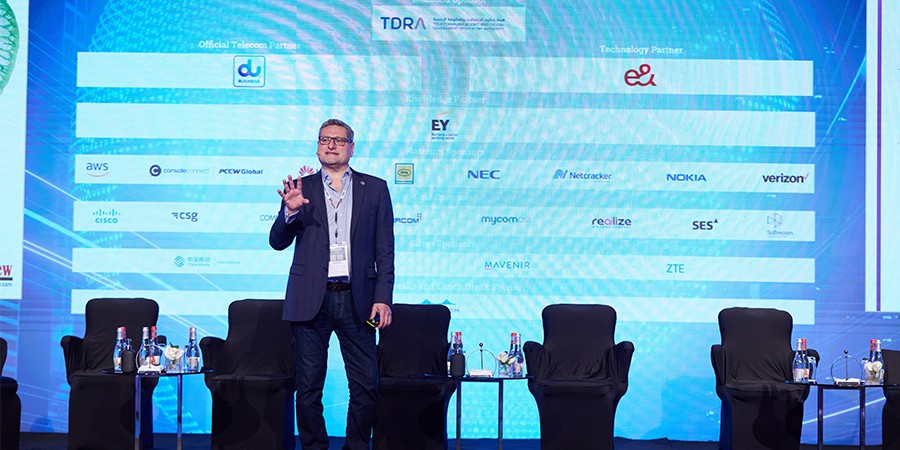During the second day of Telecom Review Leaders’ Summit, TELUS CTO Dr. Ibrahim Gedeon delivered a keynote discussing sustainability development goal (SDG) reporting.
“Social change is critical,” said Gedeon, but in the case of the telecom industry, “sustainability is [only] the fourth pillar after quality, price and evolution.”
TELUS leverages both global-leading technology and compassion to drive social change and enable remarkable human outcomes. As one of the leading telecom companies, this presents “an opportunity to provide a template where we can compare, not compete.”
As per the TELUS executive’s presentation, some of the company’s main goals include: making the planet greener and becoming net-carbon neutral by 2030 or sooner; ensuring everyone has equal access to their global-leading networks; and cleaning landfills with a modernized approach.
Supporting their customers and team members by delivering on SDG targets, a joint initiative between TELUS and IBM conducted surveys to identify common SDGs and metrics being reported by telecom operators.
This matters due to the growing interest from 1) public markets wanting to invest in and 2) customers wanting to buy from socially responsible companies. Stronger regulations around sustainability reporting also play an important part.
Survey results highlighted that telecom operators are not aligned with SDG reporting methodology, and they suggested metrics and empirical KPIs to measure goals, highlighting the benefits of having a template for consistency.
These include SDG 5: Gender Equality, SDG 7: Affordable and Clean Energy, SDG 12: Responsible Consumption/Production and SDG 13: Climate Action.
To comply with survey recommendations, telecom operators must add SDGs that are missing from their current list and add metrics that are missing from each goal.
“Before we apply artificial intelligence, we need to think of common metrics and grounds because it's about data and how you train that data,” explained Gedeon. “We’re putting all the algorithms we use towards our goal of open source, as we do not view it as a competitive advantage. We do it for the common good.”










